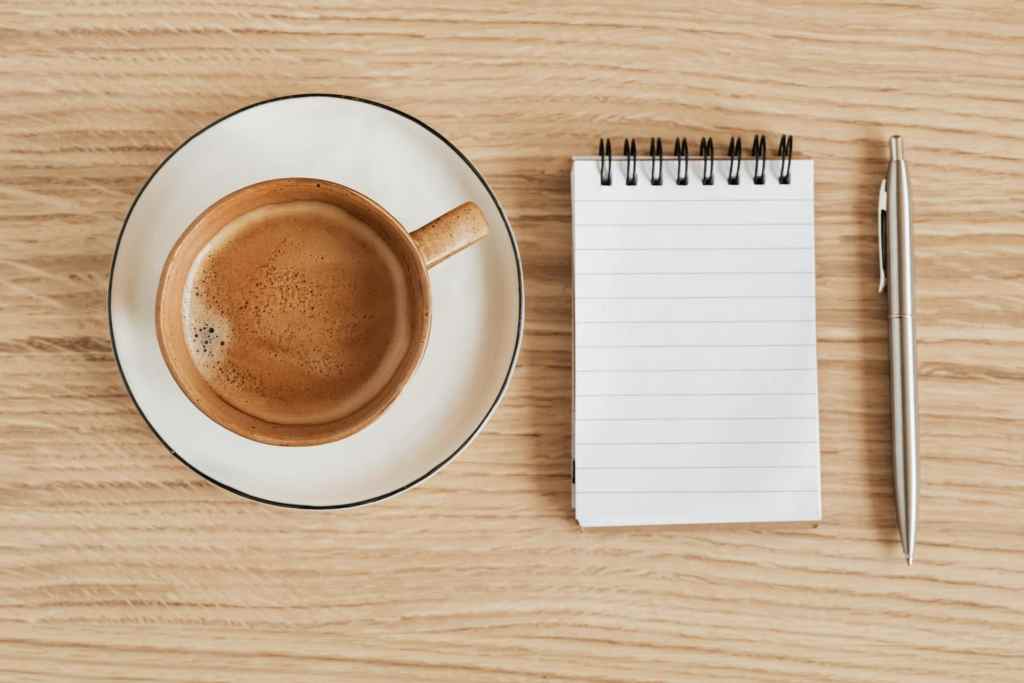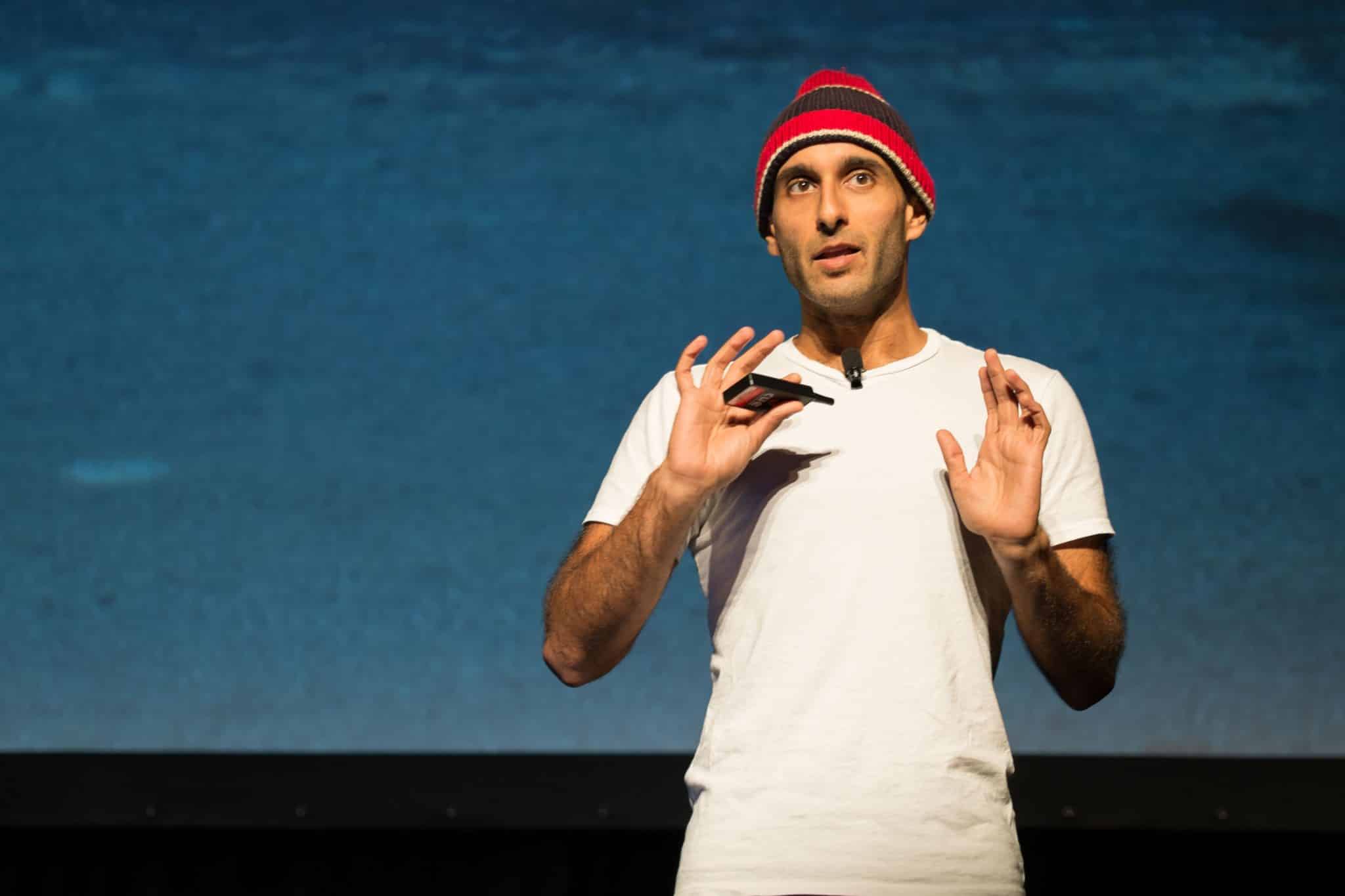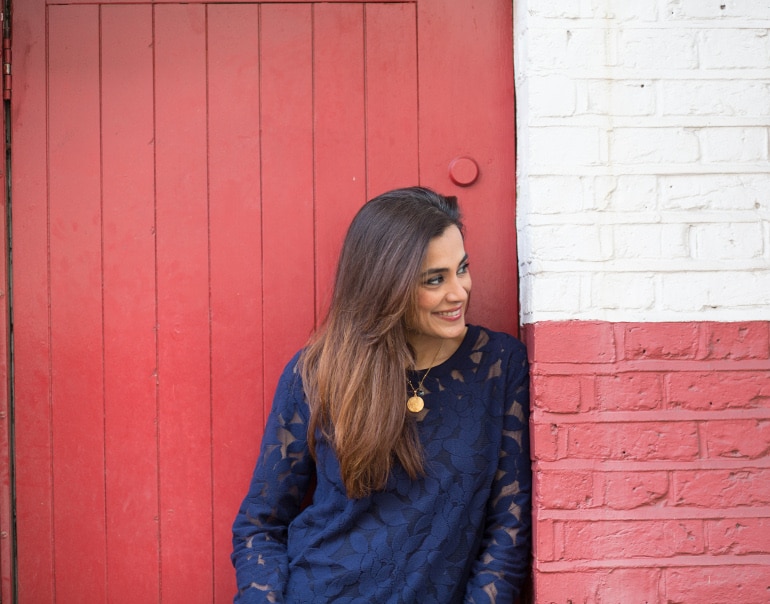Jack Heath: Boredom Is Where Ideas Come From

An author of 37 novels learned to change his circumstances, rather than himself
Here at Freedom, we frequently find ourselves inspired by the people who use our product.
From Academy Award-nominated screenwriters, bestselling authors, editors, and journalists, to developers, illustrators, designers, academics, and entrepreneurs – the Freedom community is packed with curious, creative, and passionate go-getters.
We love to share your stories because we believe the best way to solve the problems we face at work in today’s world is to learn from those who are living those experiences daily– and thriving while they do so!
Meet Jack Heath
Jack Heath is the award-winning author of thirty-seven thrillers for adults and children, including Hangman, 300 Minutes of Danger, and Kill Your Brother. His novels have been translated into eight languages, adapted for film, and optioned for television. He lives on Ngunnawal land in Canberra, Australia, with his wife and their two children. With Australia being a hotspot for new Freedom signups last year, we were especially keen to sit down and learn more about Jack and his writing process.
How did you know that you wanted to be a writer and what were your first steps in making this your career?
I grew up in a house full of books, and I’d been taught to love reading from an early age. Somewhere my mum and Dad have a photo of me asleep with my face buried in a Doctor Who novelization–I must have been about seven. I devoured the Teen Power Inc. series, then Goosebumps, Animorphs, and then eventually stories that had the name of a person on the spine rather than a series title: John Wyndham, Peter Corris, Robert Silverberg. When I realized there were human beings whose job was to dream up these stories, I knew I wanted to be one of them.
When I was thirteen my whole class studied a novel about bullying, self-harm, body image, and divorce. In retrospect, the book was very good, but not much fun. I rebelled against it by writing a young-adult sci-fi thriller with lots of car chases and kung-fu. (The rest of my class rebelled by never reading anything ever again.) I finished the first draft of my manuscript when I was seventeen, sent it to a publisher, and spent two years working on it with them.
The resulting book, The Lab, sold enough copies in Australasia and North America that I was able to write a second book, and then a third, and so on. But it wasn’t until 300 Minutes of Danger came out in 2015 that I was making what you could call a living, and I didn’t quit my day job (as a bookseller) until Hangman was published in 2018. I’m up to 37 books now.
What is the most rewarding aspect of your work?
I’m quite introverted, so I love having the freedom to research whatever interests me, follow my own thoughts to interesting places, and then challenge myself to tell the most exciting story I can about what I’ve found. I don’t give much thought to the book once it’s published; the act of writing is the point, for me. It’s a compulsion, and how I make sense of the world.
Being a writer requires natural curiosity, and a willingness to be sidetracked by interesting things. So I had to change my circumstances rather than myself.
At what point did you realize that tech was taking a toll on your productivity and time?
Distraction has been an issue for me as long as I’ve been a writer, but it’s gotten worse in recent years. My first book was published in 2006, so when I was working on my second, the internet wasn’t yet fast, interactive, or ubiquitous enough to be truly addictive—my main challenge was resisting the urge to turn on the TV. Now I have a smartphone, and I’m expected to keep it with me at all times in case of emergencies. So whenever I get bored, the solution is right there in my pocket. This is a problem because boredom is where ideas come from, and because writing is sometimes boring. The most worthwhile things are.
I used to hate myself for getting distracted so easily. I’d remind myself that Jean-Dominique Bauby wrote The Diving Bell and the Butterfly using only his left eyelid after the rest of his body was paralyzed by a stroke. And my problem was that the internet was too accessible? Boohoo. I told myself I needed to change, become more disciplined. But I couldn’t, and eventually, I accepted that the sort of person who isn’t easily distracted wouldn’t have become a novelist in the first place.
This job requires natural curiosity, and a willingness to be sidetracked by interesting things. So I had to change my circumstances rather than myself.

With Freedom blocking your digital distractions, what is the biggest change you’ve seen in your day?
It’s not like I expected. I used to waste several hours of each day online, but I’d still usually manage to scrape together about 1,500 words by dinner-time.
When I signed up for Freedom, I fantasized about reclaiming those lost hours and turning them into incredible word counts—five or even ten thousand words per day. But actually, something else happened. I still write only 1,500 to 2,500 words each day—but the quality is much better because I’m not derailing my own train of thought by jumping online every ten minutes.
The other major difference is that at the end of each day, I actually feel satisfied. Before, I was usually a frazzled mess by five o’clock.
The schedule means not much motivation is required, because I never have to decide what to do—the schedule decides for me.
Do you have a routine or habit of writing every day? If so, how do you motivate yourself to continue?
My old routine was this: I’d waste the morning online, realize at lunchtime how little I’d written, then panic all afternoon. Now I have a schedule, and Freedom helps me stick to it.
From Monday to Friday I get up at 7, make breakfast for my wife and our two kids, pack lunch for them all, walk my youngest son to school and then head back to my home office. I write between 9:15 a.m. and 3:30 p.m, with a half-hour break for lunch at 12. I try to keep the momentum going—if I get stuck on a scene, I map it out in bullet points, and if that doesn’t help, I skip the scene altogether. Usually, I come back to it later, but not always, because if I don’t want to write a scene, the reader probably won’t want to read it either.
If anything threatens to distract me, I quickly write it down in Notepad so I can deal with it after my writing time is over. I spend 3:30 to 4:30 handling emails, admin, and anything on my Notepad to-do list, and then the rest of the day is family time.
I used to let my work leak into my personal life, sometimes sneaking in some writing on weekends and after hours, but I’ve discovered I’m actually more productive when I don’t. If I keep work out of my personal time, it’s easier to keep my personal life out of my work time and stay on task when I really need to be. The schedule means not much motivation is required, because I never have to decide what to do—the schedule decides for me. And it’s easier to get excited about going to work each day if you’ve had a genuine break from it overnight.
According to Deep Work by Cal Newport, most people are only capable of four hours per day of intense concentration, and currently, I’m attempting five and a half. I think it might be better if I switch from writing to editing at about the four-hour mark because editing isn’t quite as cognitively demanding. So the schedule is still a work in progress.
What resources or tools do you use daily and have found most beneficial to your writing process?
I’m always looking for new ways to improve my process. A few years ago I bought a Neo2—a kind of digital typewriter with no internet access—to use instead of a computer. I did some of my best work on it but stopped when the hard drive became unreliable and went back to using a regular laptop.
I switched from Qwerty to a Dvorak keyboard layout in 2018, which made typing faster and more comfortable—though I wouldn’t recommend this for anyone who regularly has to use anyone else’s computer!
I’ve tried several novel writing programs over the years, and yWriter7 is the one that suits me best for writing the first draft. I use it to track my deadlines, my daily word count, which characters appear in which scenes, and so on. When my publisher gets involved in the second or third draft, I switch to Microsoft Word so we can track changes and swap comments on the work in progress. The final proofread is usually done in Adobe Reader because the manuscript has been typeset and sometimes illustrated by then.
For me, it’s not just about having the best tools but getting the most out of them. I use focus mode in Word, and automatically back everything up to OneDrive (I’ve lost whole manuscripts to computer crashes before, and there’s nothing more depressing). I send manuscripts to my Kindle app so my wife and I can review them on a tablet.
I used to waste a lot of time writing long emails because I wanted to be polite, which usually meant being indirect, but I recently realized I could change my automatic email signature to “Excuse quick email, Jack.” This meant that I could get straight to the point without offending anybody, and it’s saved me a lot of time.

What environments are most productive for you?
I used to write mostly in cafes because at home I’d get too distracted. Writing is harder than dishwashing or vacuuming, so I’d often find myself doing chores instead of my job. But cafes make expensive offices, and recently they’ve been unavailable because of the pandemic, so I had to learn to work productively from home. For a while, my wife also worked from home, which sometimes kept me on task (I’ve heard this called “body-doubling”) and sometimes distracted me (when she’s stuck in her work, she gets chatty, as do I). Now she runs a jewelry studio elsewhere, so it’s just me in our home office.
But I’ve learned that as long as I keep my phone out of reach and use Freedom to block distracting websites, I can get into a productive state within fifteen minutes or so of sitting down. Now that the cafes are open again, though, I do like to start the day with a takeaway coffee from my local. The walk home is my thinking time, preparing me for the day’s writing. If I get a bit stuck while I’m working on a scene, sometimes it helps to listen to music–but I have a bad habit of spending ages choosing songs instead of working. I’ve recently started using brain.fm, which chooses the music for me. It definitely has potential.
What time-management strategies or techniques do you use as a writer to meet your deadlines?
I write several books per year, and I’m often outlining one, copy-editing another, proofreading a third, and promoting a fourth, all at the same time—so there are too many deadlines to keep in my head at once. I used to write all the deadlines on a whiteboard, but now I use Trello so my publisher can see where I’m up to and change the schedule if needed.
The hardest part is knowing if I have enough time for a given project, or if I’ll have to ask for more—or turn the project down. A good rule of thumb for me is that I write about 30,000 words per month, except in the month of August, when I’m often on tour, and the month of December, when I always take some time off. I also know that a book will take about as long to edit as it did to write. So that means that if I’m asked to write a 90,000-word book, I know it’ll take me six months, excluding August and December.
Right now I have nine books at various stages, from just-contracted to almost proofread, and I recently calculated that I’m fully booked for the next 25 months!
Getting locked out of Facebook freed up more time for the people who really matter to me.
What is one small shift that you have made about the way you spend your time that had the largest impact on your quality of life?
I changed my Facebook password. That was a very small change, or it should have been, except I couldn’t get back in. Instead, I was locked out of the @jackheathwriter Facebook page, Instagram, Messenger, Kickstarter, and anything else that I’d used Facebook to log into. I thought this would ruin my life, both personally and professionally. I couldn’t contact most of my friends, and I couldn’t promote my books. I was stressed about it for months.
But after a while, I calmed down, because everything seemed to be fine. My books sold just as well as they had before. My close friends and family were still accessible, because I had their mobile numbers, or could contact them through mutual friends. I hadn’t lost anything important, and in fact, life was better than before. I wasn’t checking Facebook all the time, and I was no longer receiving hundreds of messages from people I barely knew, sending me questions they could easily have Googled the answers to, or asking me for favors I was too polite to refuse. (“Will you read my manuscript and provide feedback?” “Will you write a short story for my anthology?”).
Getting locked out of Facebook freed up more time for the people who really matter to me.
What do you do outside of your work routine that helps you stay productive?
I know what I should do. Drink plenty of water, eat lots of raw vegetables, stay away from sugar, alcohol, and caffeine. Go for a run when the weather is good, do an indoor workout when it’s not, go to bed at 9 p.m.
I often stick to these rules, and when I do, I’m absurdly productive. The words flow from my fingers like magic. But I’m not usually so disciplined. I make excuses. This, like my schedule, is a work in progress.
What inspires you to improve your craft?
I’m always reading, but these days I get so caught up analyzing the writer’s technique it’s hard to submerge myself in the story. I focus on the puppeteer rather than the puppets. I frequently predict the ending of a book, and if I’m right, it feels like a letdown. But if I’m wrong, I’m equally disappointed, because I’m convinced that the ending I predicted would have been better.
It takes a really, really good book to break me out of that habit and to draw me in so deeply I forget I’m reading at all. I don’t often find them, but when I do, it’s incredibly inspiring. I finish those books determined to someday write something equally good.
What projects are you currently working on that you are most excited about?
Those nine books I mentioned include a middle-grade spy series, an illustrated comedy, a futuristic war novel, and a teen crime drama– but the most exciting to me right now is probably Kill Your Husband. Three couples rent a remote house for a private party. They turn out the lights and do some partner swapping. When the lights come back on, one of the men is dead, and no one can agree what happened.
I’m 35,000 words deep, and having a blast—but I know from experience that things are about to get rough. The middle of the first draft is the hardest point of the whole process. It’s where the plot starts to look rickety, the characters start to seem too thin to sustain a whole book, and then the self-doubt sets in. Maybe I used to be a good writer, but I’m not anymore? Maybe my phone has fried my brain so completely that I can’t actually do this?
The halfway point is hard. But not as hard as it used to be, because these days I can remind myself that I’ve gotten past it before. Thirty-seven times, and counting.

To find out more about Jack, visit his website, or find him on Facebook, Twitter, Instagram, and YouTube.




